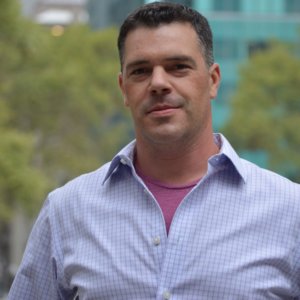
I’m willing to bet that an algorithm didn’t hire you or decide that you had the requirements necessary to be productive and successful at your current job. So why do we feel this incessant need to rely on them?
It turns out that a big part of the problem is the way that many companies are screening applicants. About three quarters of all job applications are never seen by an actual person. They’re fed into a company’s applicant tracking system and given a thumbs up or thumbs down by a machine-learning algorithm.
Who’s getting all those computer-generated thanks-but-no-thanks emails? It’s not just people who aren’t qualified for the job. It’s also those who might have gaps in their resumes, or don’t have the desired degrees, or have experience that doesn’t exactly match that asked for in a job description. That last one often screens out people who are moving to a different industry or coming from the military, where job descriptions are so different than in the private sector.
The result is that there are millions of “hidden” workers who are being screened out by overzealous algorithms. According to a recent study by researchers at Harvard Business School, there are 27 million hidden workers who are either working at jobs below their skill level or unemployed or shut out of the labor market.
And companies are completely aware of what’s going on. When asked by researchers, about 90% of executives said they were aware that highly skilled candidates were being shut out of the process. The problem is that they have grown increasingly reliant on their applicant tracking systems.
How did we get here? Back in the 1990s, companies were looking for ways to increase the number of job applications they were getting. The answer, many of them decided, was to come up with a way to allow candidates to apply online.
Technology solved one problem, but it created a new one. Companies found that they were getting deluged with applications. Technology soon came up with another solution, the applicant tracking system. Using artificial intelligence, an ATS could sort through all those resumes and select the “best” ones. As the software grew more sophisticated, an ATS could schedule interviews with the top candidates and send rejection letters to the rest.
The handful of companies selling the software made a lot of promises. An ATS could streamline the hiring process. It could cut the costs of bringing aboard new hires. And it could help eliminate the bias in the system, creating a more diverse workforce. No wonder companies adopted the technology. According to a survey by Jobscan, more than 99% of Fortune 500 companies currently use an ATS.
But the problem is that an ATS can have biases of its own. Even when you strip out names and other things that might indicate gender or race, an ATS asked to identify “promising” candidates might still recommend more men than women and more white people than people of color. According to MIT Technology Review, one of the largest job posting sites realized that its algorithm was biased, so it built a second algorithm to keep tabs on the first. To me, that’s a good argument for not using an algorithm to make your next hire.
Some algorithm-based recruiting companies tell you that their software finds the person who is likely to be the most successful in a job. But the evidence for this is spotty at best. A recent survey found that 40% of workers who started a job in the past year are already looking for a new position. That’s not a great argument for business as usual.
At Averity, our approach is completely different. We recruit top-level talent in the tech industry, but that doesn’t mean that we are reliant on the latest bells and whistles. We believe, more than ever, that people hire people.
What does that mean? We develop years-term relationships with our clients and understand the types of employees they are looking for. And we reach out to each candidate individually. To us, they’re not just a list of job titles or programming languages. We take the time get to know each of them and what their goals are for their careers and their lives. We believe that’s the only way to truly find the perfect person for a job.
For a taste of what we do, check out Human, Powered by Averity. Our latest platform is designed to let companies browse prescreened candidates and set up interviews with the click of a button. At a glance you can see where they are located, what their relevant skills are, and what starting salary they are looking for. And here’s the most important thing: we include an “X Factor,” meaning the specific skills and experience they bring to the workplace. You get a great feel for the individual in just a few words.
We’ve never stopped building relationships with the people we work with, which is what sets Averity apart. We’ll go head-to-head with an algorithm any day.


Create an Account or Sign In